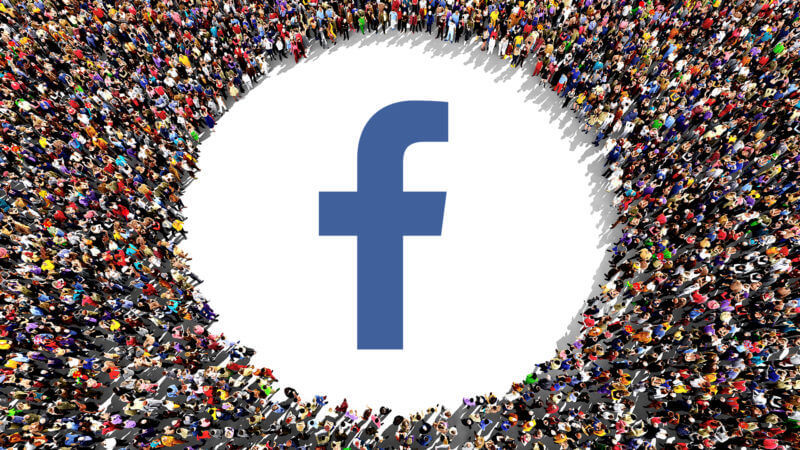Facebook acquires teen-centric polling app tbh and all its valuable data
- Fahad H

- Oct 17, 2017
- 3 min read

Facebook continues to grapple with its teen problem.
Four years ago, Facebook’s then-CFO David Ebersman admitted that the social network “did see a decrease in daily users specifically among younger teens.” A month later, news broke that the company had tried but failed to buy Snapchat, which was and continues to be exceedingly popular among teens.
Four years later, Facebook is still seeing a decline in usage among teens, according to eMarketer. But now the company has succeeded in buying an app that appeals to — and collects data from — the detached demographic.
Facebook has acquired teen-centric polling app tbh, a company spokesperson confirmed, declining to discuss the purchase price or how Facebook plans to generate revenue from the app.
Launched in August 2017 and only available to iPhone owners in the US, tbh lets people anonymously answer generally positive polls about their friends. The app cross-references the contacts listed on a person’s phone with its user base to see which friends use tbh. Then it asks people about those friends, presenting them with a list of four friends at a time and prompting them to pick which one is “so unique they should be trademarked,” “always zips up the back of my dress” or “gives the best hugs,” among other yearbook-esque superlatives.
“tbh and Facebook share a common goal — of building community and enabling people to share in ways that bring us closer together. We’re impressed by the way tbh is doing this by using polling and messaging, and with Facebook’s resources tbh can continue to expand and build positive experiences,” said Facebook’s director of corporate and financial communications, Vanessa Chan, in an emailed statement.
It’s clear why Facebook would want to buy tbh. The company doesn’t want another app ascendant among teens to parlay its popularity into competing with Facebook for advertisers’ budgets, as has happened to some degree with Snapchat. According to a tbh blog post published on Monday to announce the acquisition, “over the last few weeks, over 5 million people have downloaded tbh and sent over a billion messages.”
It’s somewhat less clear how Facebook will make back whatever money it has spent on the app. The app could add sponsored polls featuring branded questions like “always hangry and in need of a Snickers,” but that risks turning off people. Since the app locks people out after they’ve gone through a certain number of questions, it could offer people the choice of viewing an ad or otherwise interacting with a brand in order to unlock more questions.
But it’s possible that Facebook doesn’t need to directly reap revenue from tbh, at least not immediately, for the app to prove valuable. Facebook built its business on an ability to suss out people’s connections to friends and family members. That has been fueled by all the data people give Facebook about their relationships, from tagging friends in photos to commenting on family members’ photos to declaring relationship statuses. But the less teens use Facebook, the less relationship data it has about them. That hurts Facebook’s ability to create a network effect with which to keep teens on the social network. This is where tbh could come in.
Tbh provides Facebook with two types of data that could be particularly valuable.
First, when people sign up for tbh, they are asked to give their phone numbers and access to their contact lists. Assuming tbh will pass this data on to Facebook — as Facebook-owned now WhatsApp does — Facebook could use a person’s phone number to see if it is connected to a current or defunct Facebook, Instagram, Messenger and/or WhatsApp account. Even if it’s not, Facebook could use the phone number to see which Facebook users that person may be connected to, since many Facebook users provide the company with access to their contact lists. Facebook could then use these inferred relationships to triangulate a profile of that person based on their friends’ data, such as their interests. And it could use Apple’s and Android’s advertising-specific device IDs to then target that person with ads across the various apps within Facebook’s Audience Network ad network.
Second, when people use tbh, they are asked for data that’s useful in fleshing out a person’s relationships. “Always zips up the back of my dress” may seem like a trivial question, but the answer is an indication of how strong or weak a person’s connections are to the listed friends and can be used to weigh those relationships, which Facebook already does when deciding how to rank posts in people’s Facebook and Instagram feeds.
“Takes every single BuzzFeed quiz” may also seem insignificant, but it signals that the chosen friend is someone who’s interested in BuzzFeed, quizzes and learning about themselves and can be tied to that person’s profile in the same way that Facebook could use tbh to craft a person’s profile and target them with ads on or off Facebook.




Comments